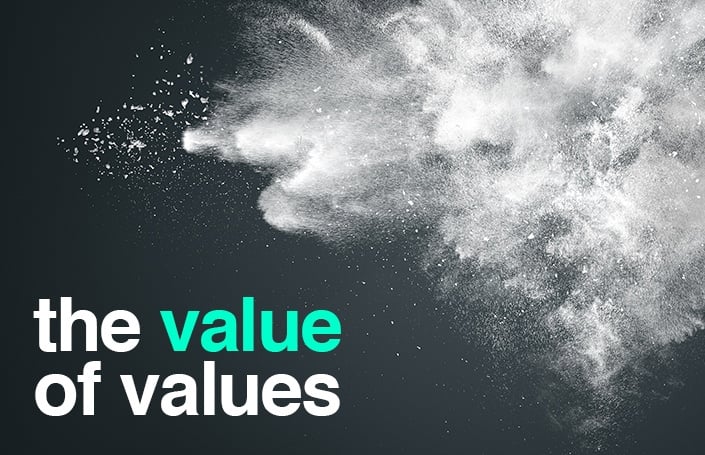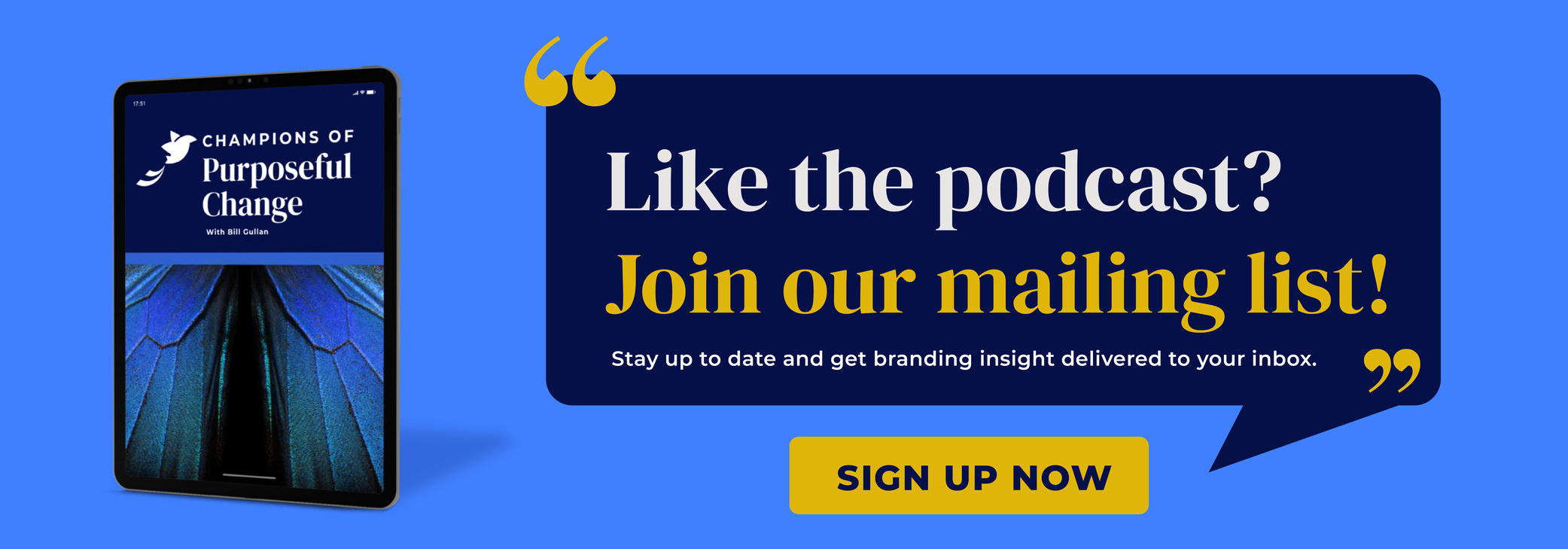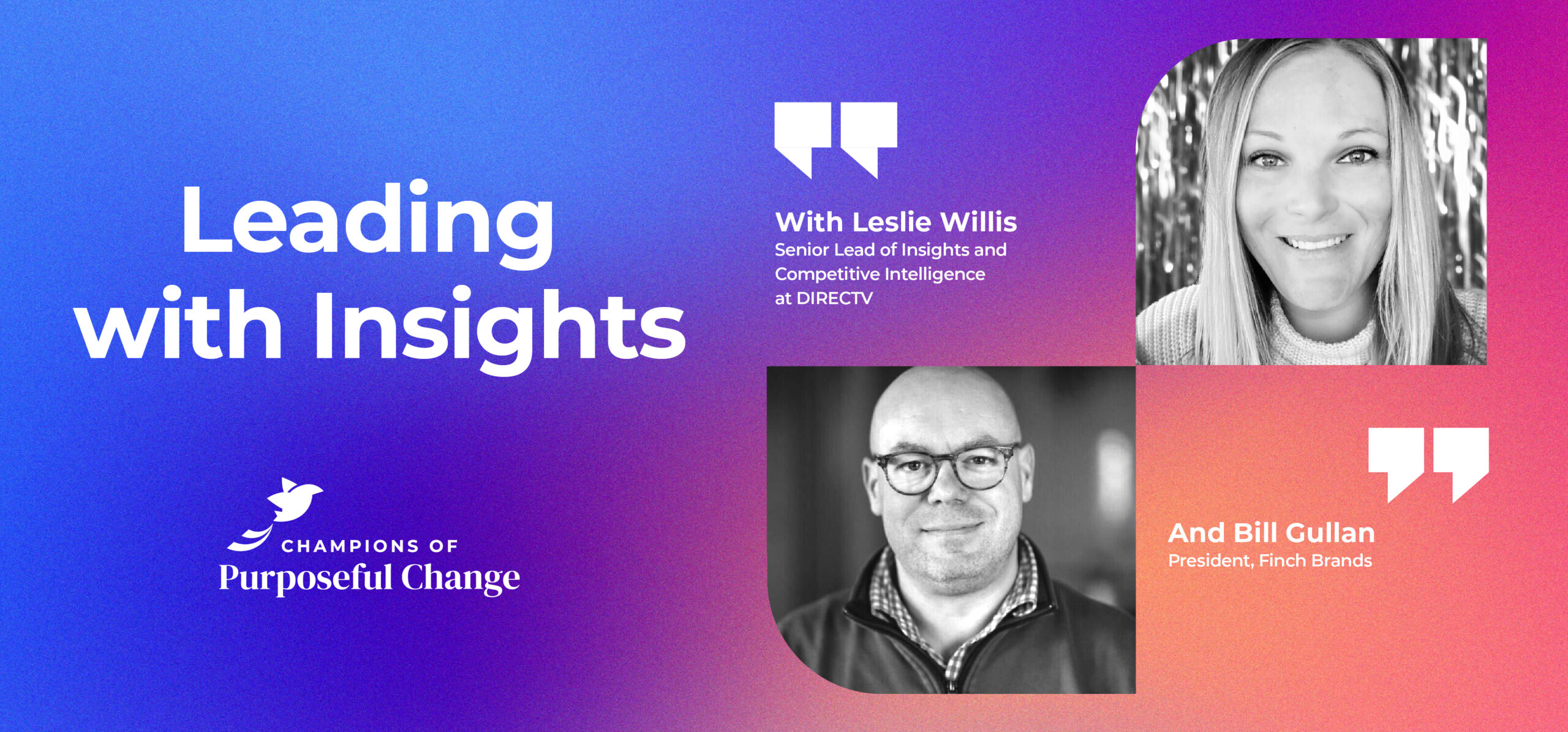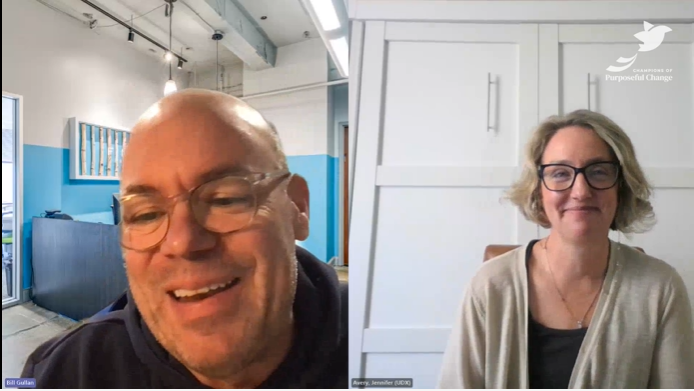One Big Idea: The Value of Values

When it comes to brands, core values are about defining cultural distinctiveness. In this week’s episode, Bill examines how to properly develop core values that help steer an organization as well as the inherent benefit to defining and embracing a set of fundamental brand beliefs. If you like our podcast, please subscribe and leave us a rating!
Podcast: Download Subscribe: iTunes | RSSTranscription
Bill Gullan: Greetings one and all. This is Real-World Branding. I’m Bill Gullan, President of Finch Brands, a premier boutique branding agency. Happy New Year to all. Forgive a bit of the rasp in my voice, which is reflective of the time of year and the temperature change, and having two kids at home etc., but I sound worse than I feel, fighting through it and hope everybody out there is doing well.
This is One Big Idea. This is what we do in weeks between longer-form interviews, and we focus on one particular concept and go into it a little bit but in a short timeframe, 7, 8, 9 minutes. Today we’re going to talk about values. We’ve done on previous One Big Idea episodes a bit of a meditation on vision mission and other elements of building and thinking through central and fundamental beliefs that companies use to rally and unify the internal team, and in many cases, these are public facing as well or at the very least the behaviors that they’re seeking to create and reinforce, extend into the public domain when one interacts with companies and brands.
Let’s talk about values a little bit. Typically, values or core values, or whatever you want to call them, are really about the behaviors that a company wants to hold up to a level of prominence and to live by. There are tons of things that companies want to be part of their internal culture, or that the culture has organically held up as important things to how they function, how people work and how people motivate. The core values, and they really ought to be a pretty self-contained list of 3, 4, 5 major beliefs and behaviors, are those that rise to the top of the table, that drive distinctiveness, that propel people and teams forward, to help cultures form and to help work, ideas, and everything else come to fruition.
Many organizations historically have done this in a way that can come across as a little bit limp. ‘Our core values are innovation, or creativity or whatever,’ and that’s not enough. It is our perspective, and I think it is a gathering consensus in our industry, that the best values are verbs; they’re things that we do. They’re statements that are memorable and clear, that are motivating. It’s easy to say, ‘Well, our value is innovation,’ but what does that really mean when you compare that to focusing [on action], like Facebook does in their core values: ‘Move fast – We have a saying, move fast and break things.’ It’s one thing to say you’re innovative; it’s another to say that you ‘move fast and break things.’
Let’s talk through actually some of Facebook’s 5 or so core values, because I think in some ways, they’re instructive of best practices in terms of thinking through and developing core values and writing these things down so that everyone, whether it’s new members of the team that you’re interviewing or onboarding, or whether it’s folks thinking through what behavior to celebrate and reward and encourage. Facebook has 5, and some of the greatest brands in the world, it is no coincidence that they also have the most well constructed, mature, and widely understood core values. Your Zappos, your Nordstrom, your Four Seasons, some of these brands that have really thought through what they mean. They believe it so deeply that it cannot help but be central to the customer experience that they provide. Facebook’s 5 core values, and the value is phrased and then there tends to be a sentence to explain and reinforce it, so here are the 5.
’Focus on impact: If we want to have the biggest impact, the best way to do this is to make sure we always focus on solving the most important problems.’ That’s about priority. That helps team members think through whether or not they’re spending their day in the right way and organizing the way that they’re thinking about their job and their team in the right way.
‘Move fast: We have a saying, Move fast and break things. The idea is that if you never break anything, you’re probably not moving fast enough.’ That is designed to suggest to members of the team there that Facebook has a tolerance for risk, has a tolerance for everything not being perfect, and there’s a bias towards action, speed, and aggression in a positive way when it comes to thinking through and executing new things.
‘Be bold: We encourage everyone to make bold decisions, even if that means being wrong some of the time.’ That’s the 3rd core value, and it’s not dissimilar to the 2nd one, but they are clearly stating that their culture is more about doing than it is about planning or analyzing, and of course, it’s important for every business to plan and analyze. They’re full of data at Facebook, they make very concerted decisions, but at the same time, underlining boldness is a part of their values, and indicates the type of person who’s going to be great there and effective in terms of what they do.
The 4th one is, ‘Be open: We believe that a more open world is a better world because people with more information can make better decisions and have a greater impact.’ That not only applies, of course, to the internal team in terms of how they want their culture to go and how transparent they expect teams to be when working with one another, but also as a company whose product and whose currency is information, that has many issues and topics related to things like privacy policy and everything else. It’s important that Facebook is exhorting its team and its leadership to focus on openness, transparency, and impact as an outgrowth of that.
Lastly is, ‘Build social value: We expect everyone at Facebook to focus everyday on how to build real value for the world in everything they do.’ Today, when people decide the types of brands and companies with which they want to bond, patronize, and of course, transact, often this notion of congruence of values between what a person values in their life and what a company wears on its sleeve (in terms of what matters to it) tends to be a much more important calculus than it used to be.
Those are Facebook’s 5 core values. We at Finch, both on behalf of our clients, as well as internally as we always seek to strengthen our culture and everything else, have been thinking a lot about values. When you think about the constellation of statements or ideas that are essential as companies start, certainly as they grow and decision-making becomes a little bit further from the founder or the core leadership team, you really need to empower team members to make decisions as they think through various processes within the company. There is an importance for vision, for mission, for values, and then on the externally facing side, lots of elements of this in terms of positioning. That often lends itself to tagline and identity and everything else. As noted, the best brands in our opinion are built from the inside out, and values are an important part of that. I think the couple rules of the road when thinking through values are really as follows, just to summarize them here.
One, it should be a pretty contained and manageable list in terms of size, 3, 4, 5, that everyone can remember and understand, and there aren’t so many that people are swimming and feel like their behavior is overly prescribed and not so few that they tend to not be exhaustive of some of the important things about culture and about how the business runs. That’s one thing, keep the list to a reasonable size.
Secondly, they should be things that you do, things that a company does, things that a company believes in that are distinctive to it or that are animating. It’s central to it. Again, the things that are table stakes when it comes to being successful high-growth businesses like being creative, like being financially focused, all the things that anyone could say, the values is probably not the place to put those ideas, because value is about defining cultural distinctiveness.
The 3rd thing is, again, let’s make them verbs. Let’s make them descriptive of the actions we want people to take. Let’s imbue them with a level of energy that help people connect these values to what they’re doing day in and day out, and in some ways to check themselves in terms of how they’re thinking and what they’re doing, how they’re spending their time against elements of the values that indicate that they’re living up to or living within what the company seeks to accomplish and how it seeks to operate culturally.
Those are 3 things to think about. Again, one example of moving from a noun to a verb, so instead of integrity, which is a fairly generic value that doesn’t have any action associated with it, a verbal approach to that might be, do the right thing. Instead of innovation, a verbal approach to that might be, experiment every day. Instead of courage, a verbal delivery of that might be, share your opinions and stand strong. There’s a bunch of ways to express ideas that may be familiar and comfortable in a way that is distinctive and animated.
That’s it from here. The Value of Values is ultimately about tethering the belief system of a company to all the individuals who occupy and the various roles within the company and who are empowered to bring these beliefs to life day-in, day-out for their colleagues as well as, ultimately, for their customers and the world at large.
Three ways to support us at Real-World Branding, if you so desire. One is to subscribe to make sure you don’t miss any episodes of what we do. We do this weekly, again, every other week as a longer-form interview with a business and brand builder, and the weeks in-between, we do these One Big Ideas that we hope are practical and valuable and focused. So we’d love it if in the app store of your choice you click that subscribe button, so whenever a new one goes live, it flows right in as soon as you open your podcast app or whatever it is.
The next way is to continue this dialogue with us, on Twitter’s probably best, @BillGullan or @FinchBrands. We love to hear comments. Our skin is thick. We certainly love to hear ideas for future guests, future topics, future questions for specific guests or questions you’d like me to take up with One Big Idea. I think maybe one of these in the future we might do a Q&A mailbag type of feature, so if you have a certain question you’re thinking about or an idea that you’d like to hear our take on or my take on, please forward it our way via Twitter, and one of the things we’ve enjoyed as much as anything else about this podcast 10 months in is the dialogue with our listeners.
Lastly is if we’ve deserved it to give us a rating, 4 stars, 5 stars. We are told and we believe that the degree of visibility we’re able to achieve here does have to do with the number of listeners that we have, which is steadily growing, but also the degree which those listeners seem to really enjoy the content that we’re putting forth. Again, we’re trying to make it as valuable and as interesting as we possibly can. Signing off from the Cradle of Liberty, have a wonderful week.







